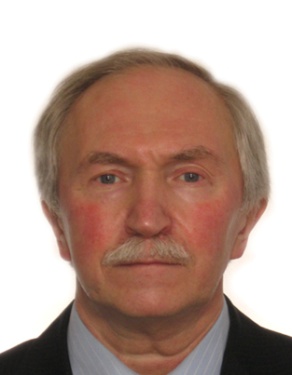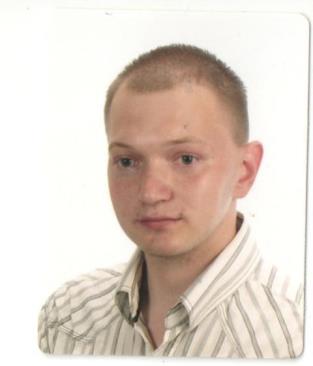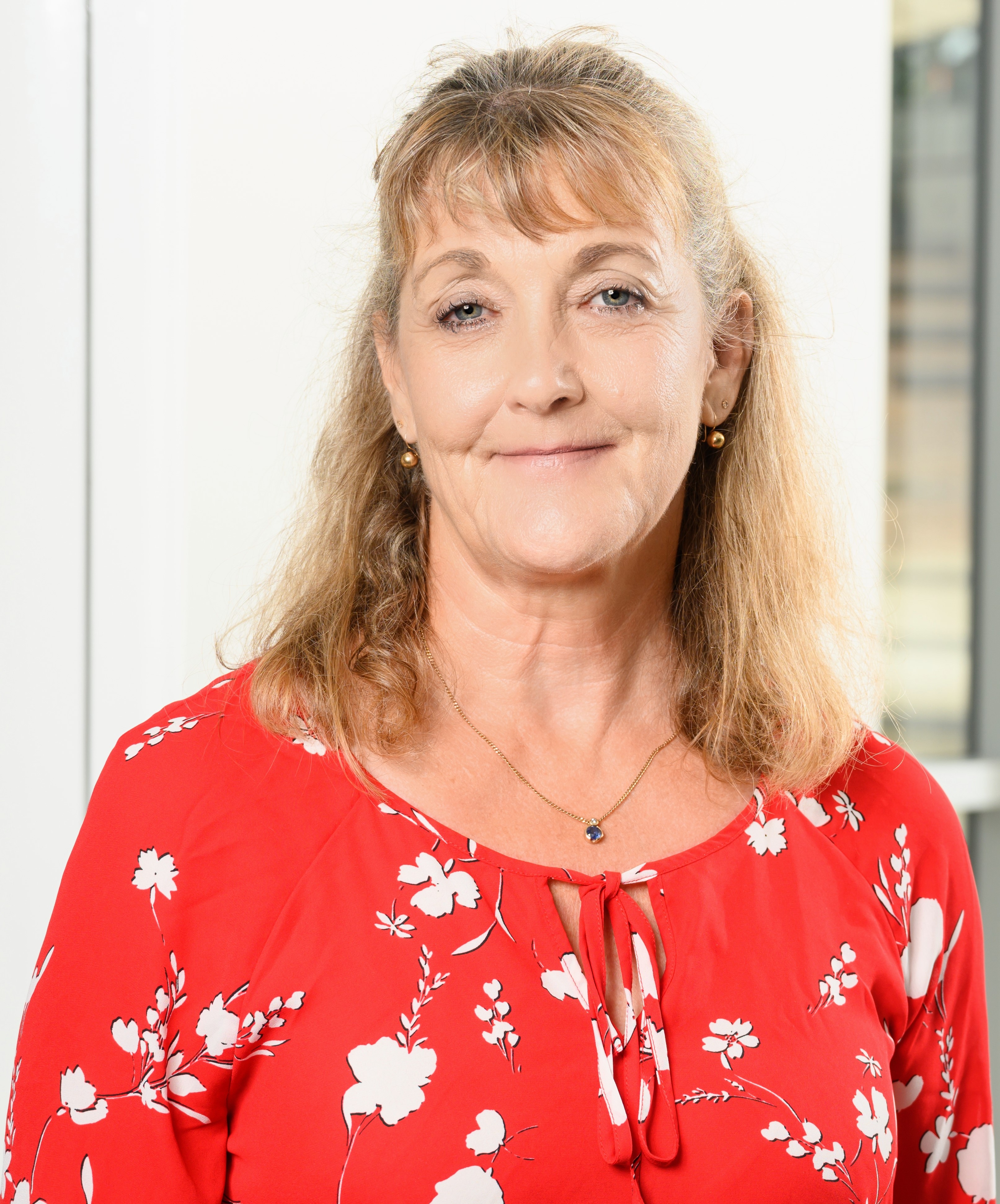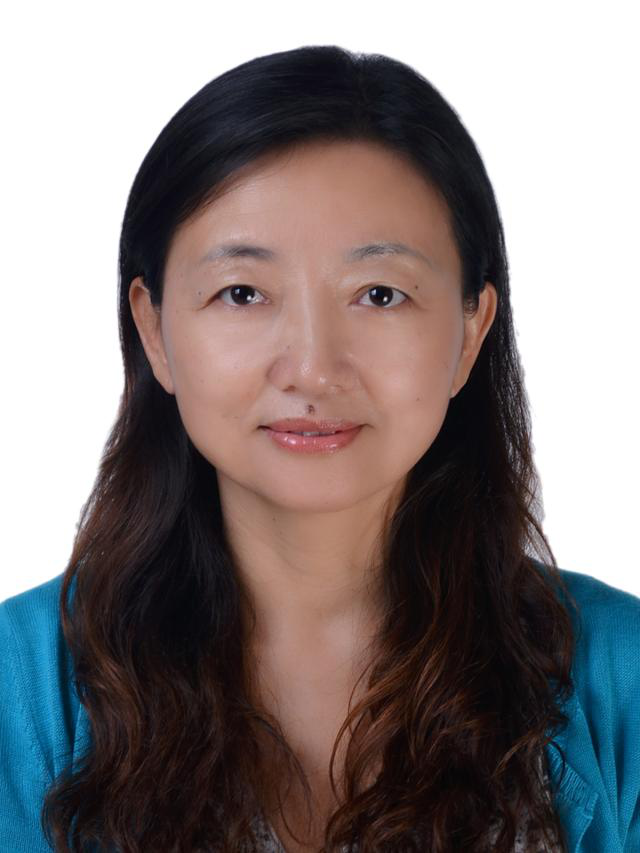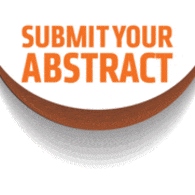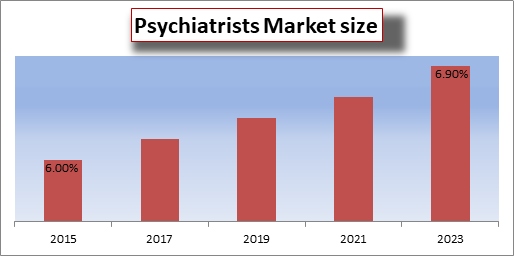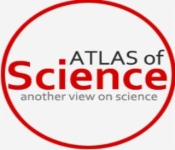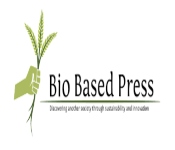Applied Psychology
Welcome to the Annual Congress on Applied Psychiatry and also join the conference using online platforms during October 20-21,2022 as a Webinar. Applied Psychology 2022 is being organized with the association of Journal of Psychiatry and Clinical Psychiatry, where all the conference abstracts will be published.
Journal of Psychiatry and Clinical Psychiatry is a multidisciplinary journal. The journal promotes the latest advances and innovations to be published as research articles, reviews, case studies, commentaries, short communications, and letters to the editor on the open access platform.
"Modernizing and Achieving Mental Wellness through Applied Psychiatry" is the conference's theme. Scientific Tracks designed for this conference will enable the attendees and participants to learn extremes.
Importance & Scope:
Applied Psychiatry Meet 2022 is an amazing event for the exchange of ideas and authoritative viewpoints by the world's finest scientists, covering the entire range of psychiatric disorders research and treatment processes. This conference provides a platform for overcoming important psychological challenges that affect everyone from the common man to the entrepreneur, such as depression, anxiety, mood disorders, and many more, all of which are caused by the global COVID pandemic. This event is a great opportunity to share, view, and exchange all of your knowledge, as well as to form research collaborations and network.
Why to attend Applied Psychology 2022?
The focus of the Applied Psychiatry Meet 2022 is on emerging therapies, with inspiring logical introductions and keynote speakers providing an international platform for conversation of current and future concerns in Applied Psychiatry. Our conference brings together prominent national and international personalities on a single floor, with world-class speeches and discussions by leading Psychiatrists and Psychological Committees. Our conference includes a symposium, workshops, lectures, a YRF (Young Research Forum), poster presentations, paper presentations, and other activities for participants from all over the world.
Target Audience:
• Psychotherapists
• Clinical psychologists
• Psychologists
• Mental Health Specialists
• Neurologists
• Healthcare Scientists
• Psychiatric Counsellors
• Psychiatric Pharmacists
• Professors
• Researchers
• Mental Health Administrators Mental Health Educators
• Students
Benefits of Joining Webinar:
• Get your abstract published in our proceeding journals
• Get certified for your participation
• Reduced Costs Affordability
• Learn from the Pros
• Global exposure to your research
• Make new connections
• Significant time saving
• Wider Reach
Sessions and Tracks
-
Child and Adolescent psychiatry
Child and Adolescent psychiatry includes the diagnosis, treatment, prevention, and rehabilitation of evolving disorders, as well as behavior disturbances during childhood and adolescence. The child and adolescent therapist could be a doctor who major within the conclusion and the treatment of disorders of considering, feeling & behavior influencing children, young people, and their families .The child and adolescent psychiatrist marks a diagnosis based on the pattern of behavior and emotional symptoms, using a standardized set of diagnostic criteria such as the Diagnostic and Statistical Manual.
Treatment will usually comprises one or more of the following elements are behavior therapy, cognitive-behavior therapy, problem-solving therapies, psychodynamic therapy, parent training programs, family therapy. The need for a separated psychiatric discipline for children and adolescents results from age-dependent characteristics of mental disorders, strongly prejudiced by rapidly alternating stages of the neurobiological and social development in this period of life.
Young people present with several different problems including:
-
Attention Deficit Hyperactivity Disorder (ADHD)
-
Disruptive Behaviour
-
Anxiety and OCD (obsessive compulsive disorder)
-
Attachment Disorders
-
self-harm and Attempted suicide
-
Panic disorder
2. Post Traumatic stress Disorder
Post Traumatic stress is a disorder that develops in people who have experienced a shocking, scary &dangerous events.It is characterized by failure to get better after undergoing or witnessing a scary event The condition may last months or years, with set off that can bring back memories of the discomfort accompanied by intense emotional and physical reactions. People who were abused as children or who have been frequently exposed to life-threatening situations are at danger for developing PTSD. Victims of trauma related to physical and sexual assault face the utmost risk for PTSD. Psychiatrists and psychologists use specially developed interview and assessment tools to evaluate a person for the existence of PTSD or other psychiatric conditions. Treatment for PTSD may comprise psychotherapy& medication. The goal of PTSD treatment is to reduce the emotional and physical symptoms& to improve daily operations, and to help the person better manage with the event that caused the disorder. Doctors use certain antidepressant medications to treat PTSD and to control the feelings of anxiety and its linked symptoms including:
3. Psychiatric or Mental Health Nurse
Mental health & psychological well-being nursing is a sub division of nursing. Psychiatric nursing or Psychological state nursing is that the allotted position of a nurse that particularizes in psychological state , and takes look after people of all ages undergoing mental illnesses or distress. Their specific responsibilities often includes assisting patients with activities of daily living, directing psychotropic medication and handling side effects& supporting with crisis management, observing patients to evaluate their progress, offering guidance . They deal patients with mental issues or the possibility to grow by utilizing their remedial abilities and may also apply psychotherapy.
4. Psychoanalytic or Psychodynamic Therapies
Psychoanalytic Therapy: Psychoanalytic therapy is a form of detailed talk therapy that intent to fetch deeply buried thoughts and feelings to the conscious mind so that oppressed experiences and emotions, repeatedly from childhood can be examined.
Benefits of Psychoanalytic Therapy
Psychodynamic Therapy: Psychodynamic therapy is an overall therapy or form of therapy with a complete focus on the viewpoint of the client. Psychodynamic therapists try to help clients to find changes in their emotions, thoughts, and beliefs in order to gain insight into their current self. This form of therapy is frequently used with clients suffering from sadness or anxiety diagnoses.
Types of Psychodynamic Therapy
Brief Psychodynamic Therapy: This type of therapy is mostly conducted over the course of limited sessions, or even just one session in some conditions. Psychodynamic therapy has been used to situations like
-
Critical psychological disturbances (like anxiety or depression).
-
Deeply disturbing family event (discovery of a secret, divorce, etc.).
-
Act of terrorism
Psychodynamic Family Therapy: This therapy is generally relatively long-term and often is instigated by chronic problems in the family. Psychodynamic family therapy helps families to realize and address the deep-rooted issues.
5. Alzheimer’s & Dementia
Alzheimer’s: Alzheimer’s disease is a degenerative brain disease and the most collective form of dementia. Symptoms ultimately grow severe enough to restrain with daily tasks. Doctors analyze Alzheimer's and other sorts of dementia supported a careful medical record, a physical examination, laboratory tests, and therefore the characteristic changes in thinking, day-to-day function and behavior related with each type.
Early Signs of Alzheimer's are
-
Memory loss that interrupts daily life
-
Changes in mood and personality
-
Decreased or poor judgment
-
Misplacing things and losing the ability to redo steps
-
Confusion with time or place
Dementia: Dementia is an overall term that describes a group of symptoms associated with a weakening in memory and thinking skills.dementia is a group of conditions characterised by impairment of at least two brain functions, such as memory loss and judgement.symptoms comprise forgetfulness, limited social skills and thinking abilities so impaired that it interferes with daily functioning.
Symptoms of dementia
-
Problems with short-term memory.
-
Keeping track of a purse or wallet.
-
Paying bills.
-
Planning and preparing meals.
-
Traveling out of the neighborhood.
6. Stress, Anxiety and Depression
Stress: Stress is a reaction to a threat in a dangerous situation. When the brain gets a bullying signal, a flood of chemicals overrides the rational, more evolved part of the brain, called the prefrontal cortex. Stress can affect your health, affecting symptoms of headaches, high blood pressure, and chest pain to heart palpitations, skin rashes, and loss of sleep.
Advices for reducing our stress are
Anxiety: Anxiety is natural reaction to stress. Anxiety can be defined as feeling that one’s internal determination and strength is outmatched by an external stressor element. Anxiety gives the same physical and biological elements as stress. Anxiety stimulated neurotransmitters and hormones stay ramped up and our minds get stuck in monotonous worry.
Experiences of Anxiety Disorder are
-
Fear, panic & anxiety in situations where most people would not feel anxious or threatened.
-
A constant distressing worry or anxiousness
-
Sudden panic or anxiety occurs without any clear trigger.
Depression: Depression roots feelings of sorrow and a loss of interest in activities you once enjoyed. Depression is unlike from usual mood variations and short-lived emotional reactions to challenges in everyday life. It can lead to a variety of emotional and physical problems and can reduced your capability to function at work and at home.
symptoms:
-
Lack of motivation or attention in life in general
-
Low energy level
-
Feeling affected by daily tasks and personal interactions
-
Insomnia
7. Yoga, Meditation and Anger Management
Anger is a normal reaction when we have been physically or emotionally upset. Anger is obvious in politics and religion, a tool used to spread narrow mindedness, establish worldviews, and hinder a profound discussion that considers all sides. Regular meditation can reduce the size of the amygdala, the part of the brain that regulates the flight response. Spiritual traditions such as yoga and Buddhism have offered detailed anti-anger prescriptions because anger undermines their main goal in attaining happiness and freedom. Yoga as poses and exercises that make the body more flexible and strong.Meditation lowers and balances the hormone- Cortisol. The hormone well known for causing stress and leading to extreme situations. The balancing of this hormone helps the body and mind to quiet and function with clarity and focus.
8. Addiction Psychiatry& Addiction Medicine
Addiction Psychiatry is a medical specialisation of psychiatry that focuses on the assessment, investigation, and treatment of patients who have one or more addiction-related illnesses. Addiction psychiatry provides evidence-based integrated therapy for patients with co-occurring psychiatric and substance use disorders, which account for the majority of people seeking behavioural health treatments. Addiction Medicine is a medical subspecialty concerned with the diagnosis, prevention, evaluation, treatment, and recovery of people who have substance-related and addictive disorders, as well as people who use substances such as alcohol, nicotine, prescription drugs, and other illicit and licit drugs in ways that are not natural.
9. Psychosocial Rehabilitation
Psychosocial rehabilitation is the process of restoration of community functioning and well-being of an individual diagnosed in mental health or emotional disorder and who may be considered to have a psychiatric disability. Psychosocial Rehabilitation is a treatment designed to help improve the lives of people with disabilities and work in their communities as independently as possible.They focus on helping individuals develop skills and access resources needed to rise their capacity to be successful and satisfied in the living, working, learning and social environments of their choice.
These principles include:
-
All people have potential that can be established.
-
People have a right to self-determination.
-
The prominence is on the individual's strengths rather than their symptoms.
-
Professional services should be committed and take place in as regularized an environment as possibl
10. Schizophrenia
Schizophrenia is a chronic, severe mental disorder that affects the way a person thinks, acts, expresses emotions, perceives reality, and relates to others.schizophrenia it can be treated and managed in several ways by Antipsychotic medications, Psychotherapy, such as cognitive behavioral therapy and assertive community treatment and supportive therapy and Self-management strategies and education.
Some of the following symptoms of Schizophrenia are
Hallucinations: These contain a person hearing voices, seeing things, or smelling things others can’t notice.
Delusions: These are incorrect beliefs that alter over time, even when the individual who believes them is confronted with new information or facts.
Cognitive issues/disorganized thinking: People with schizophrenia's cognitive symptoms have a hard time remembering things, organising their ideas, and finishing tasks.
11. Midwifery and Women’s Health
Midwifery: Midwives offer health care services to women of all age groups. Midwives work with other associates of a woman's health care group. Midwives partner with women to do create important health decisions. The three main kinds of midwives are certified nurse-midwives (CNMs), Certified midwives (CMs), Certified professional midwives (CPMs).
Women’s Health: Women's health states to the health of women. Our family physicians, nurse specialists, certified nurse midwives and other specialists, as well as our health educators, nutritionists, social workers, and behavioral health providers, work together to provide comprehensive and complete care to women of all ages. Pregnancy and childbirth are related with substantial risks to women with maternal mortality accounting million deaths per year .Women health care offer quality healthcare services that meet the unique needs of women throughout their lives. All of our health centers provide a range of services for women. Services include:
-
Gynecological care
-
Family planning
-
Prenatal care (including Centering Pregnancy groups)
-
Specialized care for women with HIV/AIDS
12. Psychotherapy and Mindfulness
Mindfulness: Mindfulness is the basic human ability to be fully existing, aware of where we are and what we’re doing, and not overly reactive or astounded by what’s going on around us. The Types of Mindfulness Practice are walking, standing, and moving meditation. This mindful state is described by less judgment, prejudice, and worry and more acceptance, and empathy .
Psychotherapy: Psychotherapy also called counseling, it is form of treatment for psychological, emotional, or behavior disorders in which a trained person creates a relationship with one or several patients.
Types of Psychotherapy are
Psychodynamic therapy: Psychodynamic therapy is established on the hypothesis that you are having emotional problems because of unsettled, generally unconscious battles, often constraining from childhood.
Interpersonal therapy: Interpersonal therapy based on the behaviors and interactions you have with family and friends. The goal of this therapy is to improve your communication skills and increase self-respect during a short period of time.
Cognitive-behavioral therapy: Cognitive-behavioral therapy helps people with mental illness identify and change incorrect opinions that they may have of themselves and the world around them.
13. Self-harm and Suicide Prevention
Self-harm: Self-harm has been described as a preoccupation with deliberately hurting oneself without conscious suicidal intent, often resulting in damage to body tissue. Self-harm contains behaviour such as cutting your skin or overdosing on medication. It is a behaviour of an unhealthy way to cope with strong feelings. If the person is a child or teenager, enquire him or her to talk to a trusted adult. If the person who is self-harming is an adult, advise mental health counseling.
Suicide Prevention: Suicide prevention starts with recognizing the bullying signs and taking them seriously. Suicide is a troubled attempt to escape suffering that has become unbearable .It is Blinded by feelings of self-loathing, hopelessness, and isolation, a suicidal person can’t see any way of finding relief except through death. Depression is also a main risk factor for teen suicide.
14. Autism or Autism spectrum disorder
Autism also named autism spectrum disorder (ASD) is a complicated condition that contains problems with communication and behavior. People with autism have trouble with communication. People with Autism have trouble understanding what other people think and feel about them. Autism spectrum disorder is a disorder associated to brain development that effects how a person witnesses and socializes with others causing problems in social interaction and communication. The disorder also covers limited and repetitive patterns of behavior.
Common symptoms of autism include:
-
A lack of eye contact
-
A thin range of interests or deep interest in certain topics
-
High sensitivity to touch, smells, or sights that appear ordinary to other people.
15. Research work and Case studies on Psychiatry and Psychology
Case study in Psychology and Psychiatry describes the use of a intense research approach to obtain an in-depth analysis of a person, group, or phenomenon. In psychology case studies are most often used in clinical research to define rare events and conditions, which contradict well established principles in the field of Psychology .The Department of Psychiatry plans to advance the well-being and the prosperity of people and networks through perfection in instructing, researches, and administration in the region of mental and neurological, Psychological issue. Mental health issues are essentially from unipolar and bipolar confusion, alcohol and substance-use disarranges schizophrenia and dementia. Psychiatric and mental disorders are poorly understood and much improved treatments are needed.
16. Attention Deficit Hyperactivity Disorder (ADHD)
Attention deficit hyperactivity disorder (ADHD) is a neurological disorder that effects the parts of the brain that help us plan, focus on, and perform tasks. ADHD people have trouble in paying attention, controlling, and impulsive behaviors.
The types of ADHD are
Primarily Hyperactive-Impulsive ADHD: Primarily hyperactive-impulsive ADHD patients act as if it is driven by a motor with slight impulse control are moving, wriggling, and talking at the most inappropriate times.
Primarily Inattentive ADHD: People with the distracted subtype of ADHD have difficulty in concentrating, finishing tasks. These people are simply distracted and forgetful.
Primarily Combined Type ADHD: Individuals with combined-type ADHD show a mixture of all the symptoms. A physician will analyze patients with this Combined Type ADHD of they meet the guiding principle for Primarily Inattentive ADHD and Primarily Hyperactive-Impulsive ADHD.
17. Mental Retardation
Mental Retardation is an intellectual disability that results in intellectual abilities significantly below average. Mental retardation can obstruct with learning, the ability to care for oneself, and the ability to meet general societal expectations about how to behave in society. Intellectual Disability states to substantial limitations in present functioning. Mental retardation is characterized by mainly sub average intellectual functioning, existing concurrently with related limitations. people with mental retardation struggle to avoid being defined by their disability and often face difficulties that interfere with their desire for independence and recognition as autonomous human beings.
18. Bullying and Violence
Bullying may be a frame of animosity where there's control awkwardness. Bullying is defined as unpleasant, Coercive behavior among older children that includes an actual or apparent lack of control. Bullying that involves the use of physical force or aggression against another person is known as physical bullying. An act of physical force that causes or is aiming to cause damage is alluded to as violence. Animosity, a more common sort of antagonistic conduct that may be physical, verbal, or detached in nature, can be recognized from savagery. To construct a society in which everybody feels secure, it is vital to perceive security as a human right and an open advantage that must be defended. This may be finished by committing to avoiding violence and crime by tending to its center causes.


